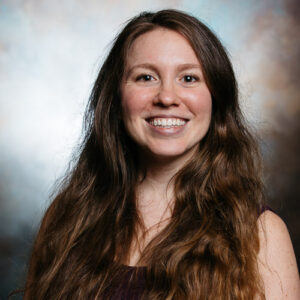Lafayette College Pubc Safety issued the following announcement on June 6.

Heidi Hendrickson
Imagine coming into the classroom as a first- or second-year Lafayette student, and finding out there are resources available to help you understand concepts you’ll learn throughout your college career—generated by other students who came before you.
That idea is becoming a reality thanks to Heidi Hendrickson, assistant professor of chemistry, who is also spending the coming academic year serving as CITLS’s first SoTL Scholar. The program, which is designed to support a faculty member in their efforts to conduct research on their teaching, will allow Hendrickson to continue her research on how demos affect student learning and engagement.
“My program, which is a chemistry education project, is trying to understand how students will engage with Mathematica demonstrations that other students develop—demos that will help general chemistry students learn. While it’s not my main research area, it’s an area that I’ve been trained in research on,” explains Hendrickson. “I did a master’s program in post-secondary science education and some education research during my graduate studies, so this is something that I’ve always wanted to do. The SoTL Scholars program is enabling me to do that as a main focus.”
Hendrickson points to a Mathematica demo page that houses demos done by her upper-level chemistry students, which is designed to help general chemistry students understand chemical concepts. The peer learning idea, which she’s also recently written a book chapter on, is being adjusted at Lafayette so that the demos are seen as a reflection piece for physical chemistry students to look back and think about what would have been helpful to know when they first entered the program.
“I’m interested in knowing if the demos work, and what their benefits are,” explains Hendrickson. “We’ve shown in the past that it’s beneficial for physical chemistry students to make these demos for people in their own class, and one of the things I’m looking into now is, ‘Is it helpful for them to make demos for students in intro classes? Are the demos helpful for students who are less experienced, and for incoming students?’”
Not only is Hendrickson looking for improved learning outcomes for both physical chemistry and general chemistry students, but having an idea of how and why the students interacted with the demos can help determine if the demos are more or less helpful than typical course material. Through a set of assessments—including classroom surveys and interviews—students will discuss what was helpful for them, and reflect on what methods are effective for their learning abilities.
“We’ll be implementing a few demos in the fall semester, and then we’ll be implementing a few in the spring semester,” Hendrickson says of the timeline. “I teach gen chem in the fall, and I teach gen chem II and physical chemistry in the spring. We will have students that are actually generating the new demos during that time. The thing that’s fun about this project is, I’ll be providing some example prompts of topics students might be interested in, and I’ll put them in groups and ask them to think about their own questions so they can come up with their own ideas for topics they want to demonstrate. It allows them to think about some areas they didn’t really understand and why that happened.”
The outcomes, Hendrickson says, will hopefully be self-evident, and allow upper-level students to see where their own pain points were as they went through four years of the program—and how they can help other students avoid those same mistakes. After the academic year is up, she also plans on giving a talk to her peers about the SoTL program and how it made her research possible.
“The SoTL Scholar position provides some professional development funds that can be used to go to a conference or to support an EXCEL student researcher, as well,” says Hendrickson. “I’d like to be able to support an EXCEL Scholar who can help with the data collection, analysis, and writing of a manuscript for publication.”
Original source can be found here.




 Alerts Sign-up
Alerts Sign-up